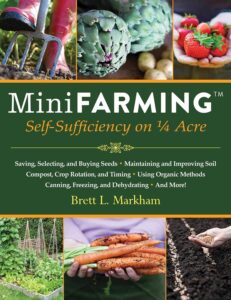In today’s society, we are often told that the government is here to protect and provide for us. We are encouraged to rely on government assistance and programs for our basic needs. However, there is a growing movement of individuals who reject this narrative and choose to be self-sufficient. These individuals are able to take care of themselves without depending on the government. But why does the government seem to dislike self-sufficient people?
The Pitfalls of Government Dependence
Relying heavily on the government can put you in a vulnerable situation. When central authorities become the primary source of services, resources, and security, it engenders a system where people’s basic needs are predominantly met by the government.
This imbalance not only grants the government significant power over everyday lives, but also inhibits people’s capacity to demonstrate their independence. When people become heavily reliant on the government for their fundamental needs, self-reliance and self-sufficiency are often perceived as threats to the prevailing system.
The Power of Self-Sufficiency in Challenging Political Structures
The principle of self-sufficiency carries considerable clout in unsettling firmly entrenched political establishments. When individuals and communities begin to satisfy their own necessities, they step outside the traditional narrative of government-reliant citizens. This shift creates discomfort for administrations accustomed to commanding authority through the delivery of public services.
Sigma males who are able to meet their own needs display a degree of autonomy that defies common governance structures. The self-sufficient are not easily swayed by policies or regulations that do not align with their needs or values, posing a significant challenge to the status quo. This heightened autonomy can push back against an overly controlling government, underlining the transformative power of self-sufficiency.
Self-Sufficiency Reduces Economic Dependence
Economic independence is an integral element of self-sufficiency. Self-reliant individuals and communities frequently engage in self-sustaining activities such as farming, crafting, and various other production methods to provide for their own needs. This significantly reduces their need for government assistance or jobs in the mainstream economy, diluting the control that the government holds over their lives.
Being able to generate one’s own economic stability, as opposed to depending on government-funded safety nets, inherently diminishes the government’s grip. As a result, the government’s power to manipulate the economic realities is weakened when individuals can provide for their own needs. This independence further bolsters the position of self-sufficient people as less reliant on the governing systems, giving them the flexibility to adapt to economic changes without the fear of losing governmental support. Therefore, the very essence of economic self-sufficiency is about creating one’s own financial safety net, a powerful tool that diminishes governmental control and influence.

> Check Current Book Prices <
Influence of Self-Sufficient Communities on Political Ideologies
Communities that embody self-sufficiency present a compelling model of an alternative lifestyle that reduces dependency on government systems. Their existence serves as a living testament that it’s possible to meet your needs without the intervention of centralized authorities. Consequently, they can act as a powerful catalyst for shifting political ideologies that advocate government dependence.
As the self-sufficient way of life gains traction, the political landscape may undergo significant transformation. This could pose a challenge to governments, particularly within societies where normie ideologies heavily impact policy-making and governance methods. As more people opt for self-reliance over dependence on government assistance, this shift in societal mindset could significantly disrupt the traditional power dynamics. Governments might find it increasingly difficult to exert influence or maintain their control as more of their population shifts towards self-sufficiency.



Why Governments Struggle to Control Self-Sufficient People
The independence that accompanies self-sufficiency presents a roadblock to governments attempting to exercise control. These individuals and communities possess a level of resilience that renders them less susceptible to the usual levers of governmental influence. They tend not to be swayed by carrot-and-stick approaches, such as offering benefits or imposing penalties, as their survival and prosperity don’t hinge on government support.
This detachment from government assistance and systems of control can lead to a significant shift in power dynamics. The independent spirit of self-sufficient individuals directly challenges a government’s authority, creating a friction between governmental intent and the realities of personal autonomy. This disconnect gives self-sufficient individuals the ability to question and potentially resist government policies or actions that do not serve their interests or align with their values.
The Future of Self-Sufficiency and Government Control
As self-reliance trends upward, it could profoundly reshape the dynamic between citizens and their governing bodies. This rise in self-sufficiency, a quest for independence from governmental influence, will force authorities to reconsider their established approaches. Instead of focusing on controlling the self-sufficient, governments may need to seek ways to effectively cooperate with them. This could lead to the development of new governance models that recognize and respect the autonomy of the people.
Governments may need to move away from a top-down, authoritative approach and towards a more cooperative model. This might involve recognizing the value of self-sufficiency and incorporating it into policy-making and societal structures, rather than viewing it as a threat. The shift could promote a more balanced distribution of power, where government exists to facilitate and support its people, not control them.






